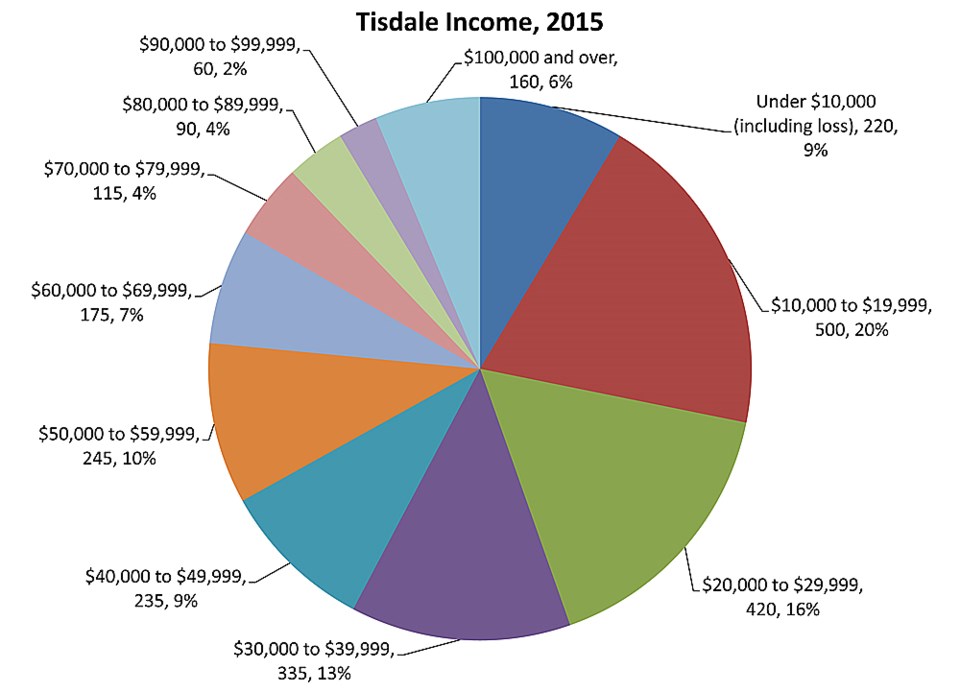As Statistics Canada unveiled the income data from the 2016 census, the Town of Tisdale has revealed that it’s appealing the census’ population count.
“When I first saw the census number, I looked at it and said there’s no possible way that we’ve only grown by 50 people since 2011,” said Sean Wallace, the town’s economic development officer. “It doesn’t make sense whatsoever considering the previous work I’ve done in terms of investment attraction and researching our population, our labour market, all those kinds of things.”
The census reported the population of the town is 3,136. Wallace said that based on the town’s utility bills and Saskatchewan Health Population numbers, the population should be around 3,548.
“When we actually looked at the census map, we noticed that everything south of Highway #3 was missing. We also noticed there were dwellings on certain sides of the streets that were missing in certain areas of town, specifically around the railroad tracks.”
The key reason why the town is appealing the census relates to money.
“There’s funding tied to your population, so if you’re missing a significant chunk of your population, that would be a significant chunk of funding that we wouldn’t be able to put back into services that we provide to the community.”
The appeal must be reviewed by Statistics Canada by July 2018.
As for the income figures themselves, they revealed that in 2015, Tisdale residents earned a median of $34,061 in 2015 dollars per year before taxes. That’s an increase from the 2010 National Household Survey, where the median was $29,987 in 2010 dollars – $32,711 in 2015 dollars.
Of the 2,560 people in Tisdale that earned income, 720 earned less than $20,000 per year, 755 earned between $20,000 and $40,000, 408 earned between $40,000 and $60,000, 290 earned between $60,000 and $80,000, 150 earned between $80,000 and $100,000, and 160 earned more than $100,000.
Wallace said he’s not sure how the income figure would be affected if there were more people than the census recorded, but he did note many of the homes the town said were missed were newer and owned by their residents, meaning that they had more income.
“I think any community with high median income demonstrates a community that’s fairly progressive in attracting investment as well as retaining those investments, providing for long-term employment for people.”
The economic development officer also noted that Tisdale compared well in terms of poverty rates with Melfort or Nipawin. Only 15.3 per cent of Tisdale residents earned less than $22,460 in 2015, compared to 15.3 per cent in Melfort and 21 per cent in Nipawin.




